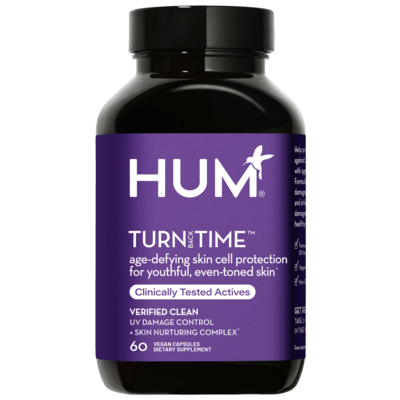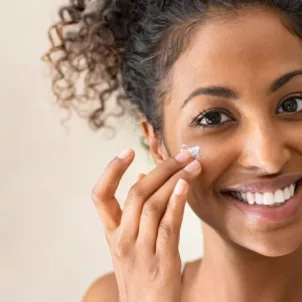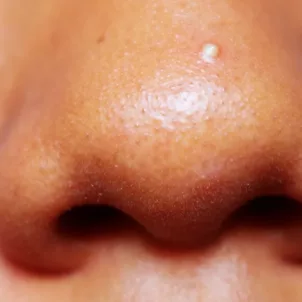Can wearing makeup age your skin? Read on for the risks and remedies, according to dermatologists.
There’s an age-old debate about premature aging. While makeup is designed to make skin look its brightest and best, is it possible that its very formulation can lead to the appearance of aging skin? As much as we hope that isn’t the case, we figured it’d be best to ask derms to find out the truth.
Keep reading to learn whether your makeup (and makeup habits) could inadvertently sabotage your complexion.


So, does makeup age your skin?
According to board-certified dermatologist Michele Green, MD, makeup itself doesn’t age your skin. However, certain ingredients in makeup can certainly work against your skin’s natural aging process. Among others, these ingredients include:- parabens
- dimethicone
- talc
- propylene
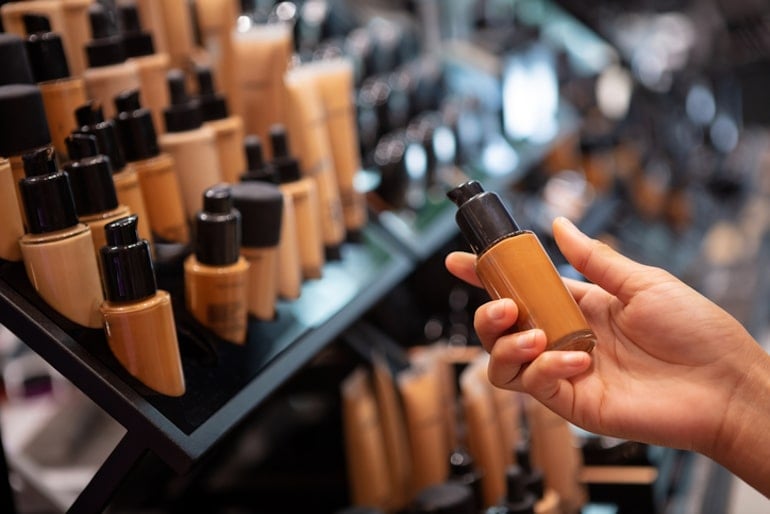
Makeup Ingredients to Avoid
To avoid risking the appearance of premature aging, it’s essential to find good-for-your-skin formulas. A big part of the process is knowing which makeup ingredients to avoid. While the list is expansive, awareness of the the following culprits will help you make strides toward better makeup choices.Fragrance
Dr. Green says to avoid fragrances (and preservatives), as they’re the most common cause of contact allergies in cosmetics. “When a company lists fragrance as one of their ingredients, they aren’t required to disclose the chemicals that make up the fragrance. Any number of irritating chemicals can make their way in and you’d never know it,” she explains. “Keep your skin clean and make it simple: Avoid fragrance altogether.”Parabens
Next, there are parabens. You may have noticed that many brands are jumping on the paraben-free bandwagon. And for good reason! According to Dr. Green, parabens mimic estrogen and can effectively wreak havoc on your skin. “Parabens are difficult to avoid, but it’s possible if you know what you’re looking for,” she reassures. “Always read the labels and put it back if you see any paraben listed, including methylparaben.”PEGs
PEGs are another major beauty ingredient to avoid. “PEGs are synthetically produced using ethylene oxide, a known carcinogen,” Dr. Green explains. “[They] function as penetration enhancers, allowing greater absorption of other ingredients. This means that any amount of toxins can be absorbed deeper into the skin.” Additionally, she says that PEGs also interfere with the skin’s moisture balance, which leads to the premature formation of wrinkles and fine lines.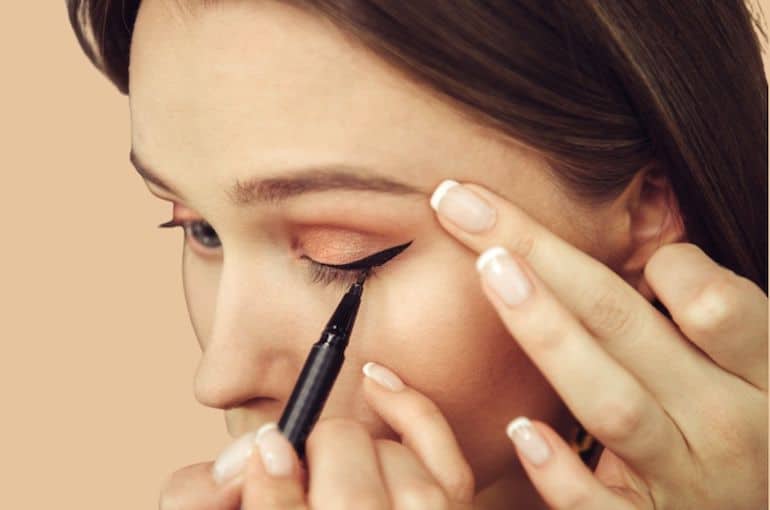
Can makeup habits cause premature aging?
Simply put, yes. Here’s the kicker: Makeup isn’t the only wrongdoer when it comes to premature aging. The way you apply and remove your makeup can play a role, too. In terms of application, many folks pull their skin taut to achieve the perfect cat eye, shadow blend, contour… you name it. While doing so may work in the moment, it can lead to unfavorable results. “Roughly applying makeup can hurt our skin, and may cause irritation, making it loose and wrinkled from harsh handling,” Dr. Green says. What’s more, it’s important to only apply makeup with clean makeup brushes. Dr. Camp recommends cleaning brushes at least once a week to prevent bacteria from accumulating. Lastly, not removing your makeup before bed is just asking for trouble. It allows not only your makeup but also the pollutants stuck in it to sink deeper into your skin as you sleep. Dr. Camp says this can cause clogged pores and breakouts.Final Thoughts
So, now you know that certain makeup ingredients and habits can potentially age your skin. However, you don’t have to avoid makeup altogether to embrace a fresh, radiant complexion. Instead, simply know which ingredients and habits are best to avoid. And whatever you do, remember that the most important thing for your skin—when it comes to aging and otherwise—is sun protection. “The American Academy of Dermatology recommends a broad-spectrum SPF of 30 minimum,” Dr. Camp shares, so look for sun-safe skincare and makeup formulas. Each and every day, whether it’s sunny or cloudy, wearing makeup or not, SPF is a must.More like this
